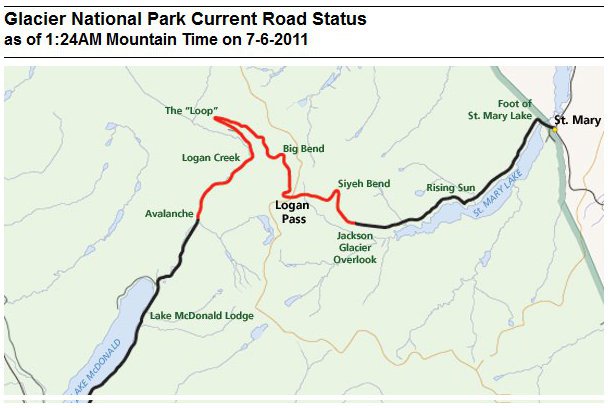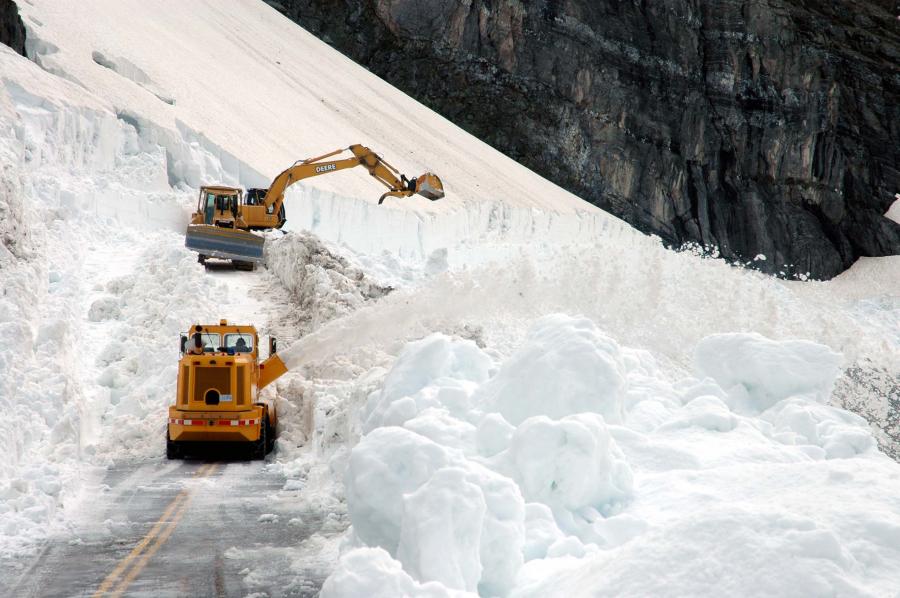 The snow pack was pretty impressive this past winter, and with the cool spring and summer temperatures across much of the Cascades, Sierras, Rockies, and Intermountain West the snow has lingered. So much so that a number of passes remain snow-covered, un-plowed and closed.
The snow pack was pretty impressive this past winter, and with the cool spring and summer temperatures across much of the Cascades, Sierras, Rockies, and Intermountain West the snow has lingered. So much so that a number of passes remain snow-covered, un-plowed and closed.
Logan pass in Glacier National Park is still closed, coming close to setting a record that was last set in 1933. It’s difficult to describe the amount of snow up there, but imagine walls of packed ice and snow 30 feet high towering over the sides of the road. A canyon of snow. That’s what is up there right now, and despite the seasonably cool temperatures, it’s still melting and, combined with heavy rains, is leading to record setting floods along the Yellowstone, Platte, Missouri and eventually Mississippi rivers.
 Heavy machinery is used to clear snow in Glacier Park’s Logan Pass on Going To The Sun Road |
I’m not going to claim that this is evidence that the climate change fear-mongers are wrong. Other parts of the nation are suffering from record setting drought and heat, and besides, there are much better scientific sources that show that climate cycles such as this are a natural part of the earth’s rhythms.
Still, whether it’s summer snow, record setting precipitation, droughts, or heatwaves, it affects outdoor recreation significantly. In Texas, drought plagued deer, dove, and turkey will be smaller and more concentrated around water sources while fish will be amassed in non-traditional areas in lakes and reservoirs where water levels are low. Ski bums and snowmobile riders may be enjoying the long snow season up in the mountains along with whitewater kayakers in the lower elevations, but in other locations extremely high temperatures and bans on outdoor campfires are making life less enjoyable for hikers and campers.
People who have been enjoying the outdoors for decades are used to these cycles. I don’t buy into the whole eco-weenie beliefs that driving my F-150 instead of a Prius is responsible for these cycles. Look around and you’ll find that these hot and cold, wet and dry cycles have been going on for millennia (Medieval Warm Period anyone?) and are unlikely to change anytime soon, no matter how many “carbon credits” we buy. For those of us who are single-minded in our outdoor pursuits, it may mean that we won’t get the chance to haul out the canoes and innertubes to go cruising down South-Central Texas riverways. But for the rest of us, it just means that it’s time to have fun in other outdoor adventures.

